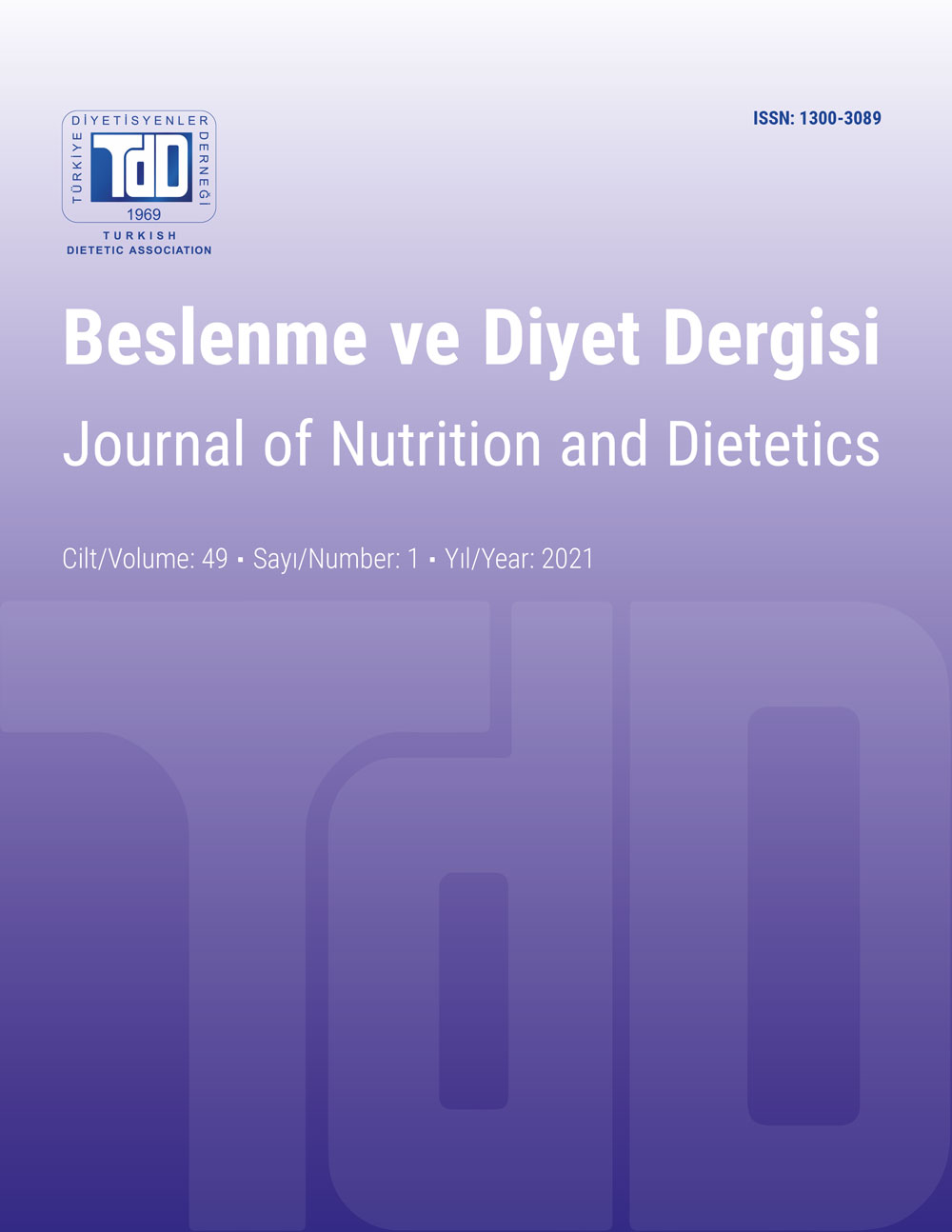Effects of Nutrition Related Social Media Shares on Adults’ Eating Attitudes and Behaviors
DOI:
https://doi.org/10.33076/2021.BDD.1389Keywords:
Nutrition, nutrition behavior, health communication, social media, eating attitudeAbstract
Aim: This research was planned to determine the effect of the social media shares about nutrition on the eating attitudes and behaviors of adults.
Individuals and Method: This study was conducted with 350 adults between the ages of 25-65, residing in Istanbul between December 2017 and November 2018. Anthropometric measurements were taken as body weight and height following the application of a questionnaire consisting of questions about general health information, social media usage and eating attitude test (EAT-40), to individuals who agreed to participate in the study. As a result of the evaluation of the eating attitude test, cut-off point reported as 30 points, the participants who got 30 or more points were defined to have negative eating attitude behavior.
Results: Social media usage rates are 85.4% (n = 233) and 82.9% (n = 117) for female and male participants, respectively. The most used social media platform is Instagram. Women are more interested in nutrition-related posts shared on social media than men (p <0.05). Individuals with negative eating attitudes are determined to follow the nutrition topics on social media more (p = 0.003). Individuals reported that they’ve developed positive behavioral changes (46.3%) such as increasing water consumption (46.3%), paying attention to label information (16.6%), reducing ready-made food consumption (16.6%) being influenced by social media. While only 8.1% think that nutrition posts on social media are prepared with sufficient information, the rate of those who believe that these shares increase their level of knowledge is 73.6%. Dietitians (58.6%) are found to be the most reliable source of information in nutrition-related posts.
Conclusion: It has been determined that the nutrition-related posts on social media, which is a fast, important and effective tool for obtaining information, affecting the behavior of individuals. For this reason, sharing about nutrition should be made by the experts of the subject and should be supervised by the relevant institutions.

